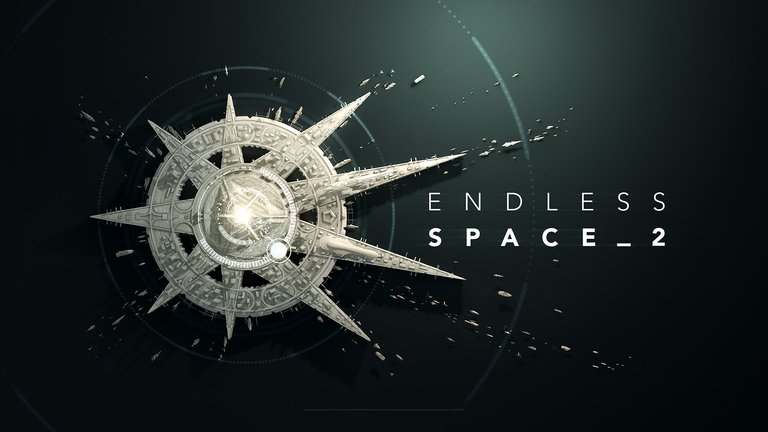
The Deeds of the Endless
I know many developers out there treat their games like it was their baby. They hold it close, let other people see it only under tight supervision, and when it's all grown up they send it out the door with the hope that it will one day send them back big stacks of cash to make all the heartache worth it.
Amplitude Studios is a bit crazy. Don’t get me wrong, it’s a good crazy. But this studio takes the baby and tells it “We have some people that we would like you to meet,” and tosses it at a crowd of fans where it suddenly finds itself crowdsurfing. Since 2011, Amplitude Studios has been creating games that seemed to follow familiar beats, but really managed to stand out because of interesting mechanics and surprisingly deep stories.
Now a subsidiary of Sega, this Paris-based team is ready to launch the latest game set in the Endless universe. The first Endless Space game was a fun take on the 4X formula and Endless Legend was a much needed breath of fresh air for the fantasy 4X genre. The greatest fear for a direct follow up to either of these was whether the game would offer anything other than a graphic update and new races to play with. I mean, sure everyone may have loved your baby – but they will start looking at you funny if you keep cloning it every three years and show off the test tube fresh version to all your friends. They might even stop inviting you to parties.
Fortunately, Endless Space 2 embraces not only its roots, but puts a focus on something core to the Games2gether philosophy: That the game wants you to engage with it in a way that is fitting for your playstyle. If you've been reading my other reviews, you know how much good will that can get from me.
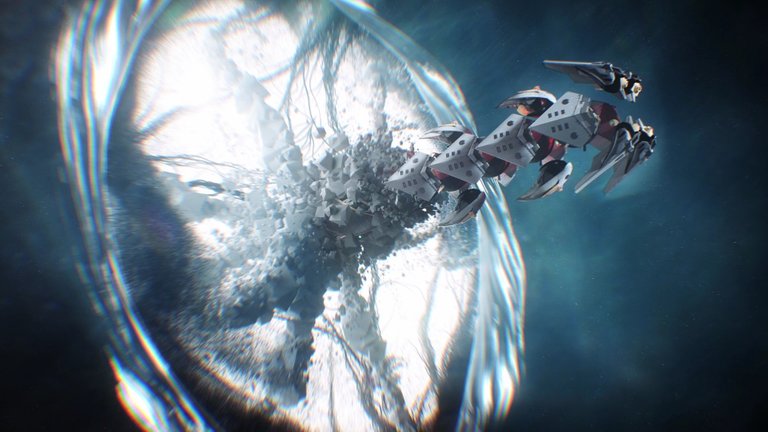
An Offer I Couldn't Refuse
For those new to the Endless series of games, I'll mention a bit about the race design. While Endless Space had some great diversity, it was Endless Legend, their fantasy game, that really showed what this company could do with interesting species. That’s carried forth here in Endless Space 2, where each faction has something special that goes beyond the often minor-feeling perks of other games in the genre, like Civilization. The unique abilities have a large effect on gameplay, be it the United Empire’s ability to just order planets to finish building things by spending influence, or the strange vampire-like nature of the Vodyani who actually leech off other factions to expand their empire.
Old folks like old sayings. And one of the classics is “Money makes the world go around.” In a good 4X game, this should also apply to the galaxy. So for my playthroughs I chose the Lumeris, the space mobsters. They didn't even colonize planets normally; they bought them. No messing around with colony ships like a chump, I was a pretty happy camper. It was really clear, this was a 4X game I could win with guile and subterfuge, aspects that are often overlooked or given less emphasis when compared to flat-out warmongering.
I was thrilled that all the factions were given a distinct look and feel. From the cocky half-grins on many of the NPC faces to faction music that blended space synth with music that evoked classic mobster movies, I couldn't wait to get going.
So there we were, the head of the Lumeris and all the families therein. I had expanded rapidly, deciding I would rely on the diplomatic technologies I had advanced and the massive amount of Dust that I was producing each turn. As any Lumeris will tell you, the economic resource of Dust is the lifeblood of the universe. I may have forgotten one little thing: A standing military. Fortunately, a wonderful race known as "The Carvers" decided to politely remind me that I should have put in a token effort in that regard.
Now, when you’re a smug society that really thinks it can buy and sell its way out of anything, there are a few things that can really stick it to you. One of those things is your first contact being with a race of genetically modified horrors that are pretty much just a hive of cybernetics-enhanced space locusts. They didn't really get the whole trade deal thing. But, there was distance between us, and we maintained a shockingly cordial relationship... Until we both decided to try colonizing the same system. Then things went a bit down hill.
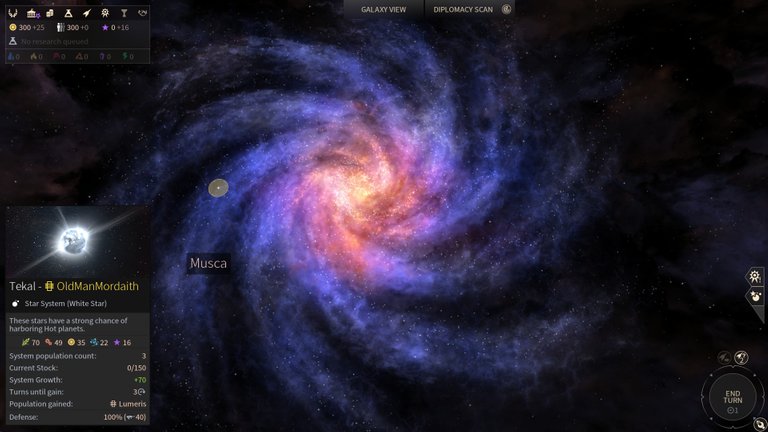
Write Your Name in the Stars
This game has a strong focus on the player building their own experience. And the more I think about it, the more I really appreciate what they have created here. While they have made it as accessible as possible, the game has lots of easily missed mechanics. You may find yourself in a bit of a struggle if you fail to grasp some of the more nuanced elements of your starting faction – and that faction’s ability to interact with the game in rewarding ways. It’s a pretty simple idea, but be sure to mouse over all those faction abilities so you know exactly what you are getting into. While it’s just the tip of the iceberg, selecting your race is the first major step you will take, and it will greatly impact the remainder of your play.
A popular mechanic in any game is the ability to craft your own faction or character. ES2 is no exception to games following this age old idea. A concern arises when you have a set of pre-made factions that have been give such attention to detail, like in this title: How would a player-made creation function in comparison? Fortunately, this is an unfounded concern. In a later playthrough, I was able to head off with my own player faction – incredibly weak but dust-savvy folks that used the core mechanics my beloved Lumeris and the visuals of the Horatio – which also meant I would be playing with the Horatio quest line and special techs. I am happy to say we held our own against the science loving Sophons and the absolutely terror-inducing tree people, the community-built Unfallen. In the end, with only a few space fights, my faction, the Gildar Megacorp swallowed up the other factions. So yes, lots of customization, but until modders get heavily in to faction mechanics, we will be stuck with the current 8 factions as a framework. This still will offer lots of variety in the extensive point buy system.
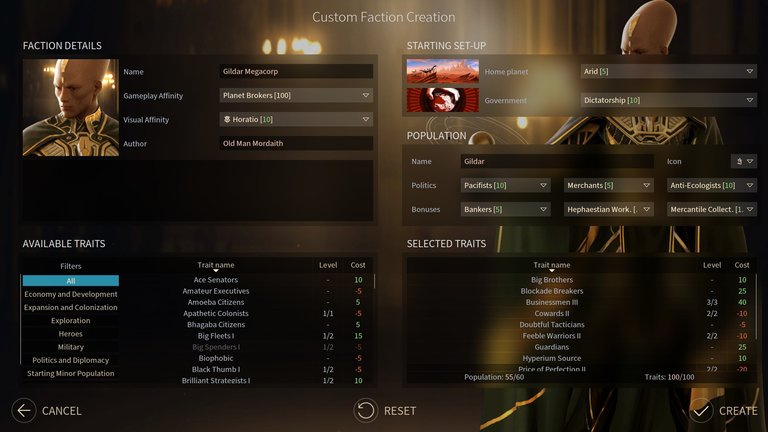
Not Just Another Pretty Face
Heroes are important to your empire, and are an excellent example of my biggest praise to this game. Each hero has its own backstory and skill tree, and you start out with one unique hero fitting for your faction. While you could have them sit around and do nothing, they are best suited if they are overseeing a fleet or managing a system. Here they gain experience, and with experience comes levels, and with levels come skill points. So you get to customize your heroes’ abilities as they level by choosing skills from three branches: A generic branch that all heroes get, one that is specific to your faction, and a third that is derived from the hero’s type. Different types excel at different play styles.
And that is where things get really interesting. As the game progresses, eventually you will begin to attract more heroes. When this finally triggers, you will get a popup menu and it will show some of the new characters that will join your cause. What hero types you can select from appears weighted by your playstyle, so if you’re focused on building military ships and getting into scraps you'll attract more combat-related heroes. Focus more on diplomacy or civic management, and likewise more heroes will be available that can aid in those fields.
I've talked with others about the comparisons of this to the Great Persons system in the Civilization games, but the big difference is the impact. Heroes in Endless Space 2 are permanent characters in your empire. They have personal ships that can be upgraded for when they are flying around with fleets, but more importantly they have a diverse set of skills that you can custom tailor to your empires needs.
With each Hero’s description, there is also mention of their political leanings. Political parties in the game have a noticeable impact, and your heroes may come to lead these parties. Some skills that were useful when your hero was in charge of a single sector of planets can extend their benefits to the empire if their political party holds control.
I mentioned I started with the Space Mobsters, the Lumeris. My first hero was Yelchin Ordara-Arrakyo and, if he was the same 'Kid' talked about in the factions intro video, he is a violent, drug using rule breaker. And apparently, also the leader of the Pacifist faction of my people.
Oh well, who am I to interfere with the democratic process.

Victory at Any Cost
Tying in closely to the play your own way mentality is an important, and often overlooked, aspect of that mantra: Endless Space 2 also lets you win your own way. Or at least gives you some very viable options. The victory conditions are six-fold, focusing on different ways that your faction will extend its supremacy throughout the stars. There is over all game Score, Wonder, Science, Conquest, Supremacy, and Economics. Each victory has a different set of mostly unique conditions that spell out how you, too, can be the very best at galactic conquest.
The only ones that may look similar at first are Supremacy and Conquest. The goal of the first is to gain control the home systems of each major faction in the game. The second one wants you to have control over a particular percentage of systems. The main difference between the two is that if you are military minded, taking and holding the home systems of your enemies may be easier than taking over most of the systems in the universe. If you are more diplomatically minded, causing neighbouring systems to fall under your sway by virtue of influence projection is likely to be a better route.
Unless you edit the main settings to pick and choose your victory conditions, you will need to be constantly vigilant of the progress your rivals are making. The more conditions, the more of a juggling act this becomes. In the end, this is going to make for very entertaining multiplayer experience, as groups of gamers with widely varied playstyles will be able to play together.
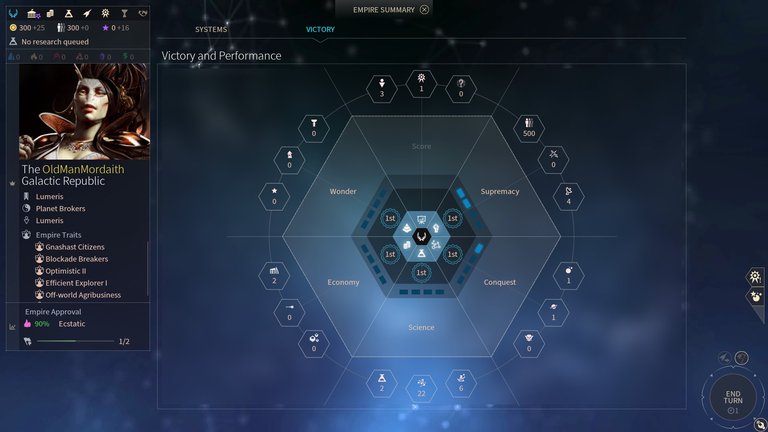
Slinging Space Mud
I have conflicted feelings about the political systems in Endless Space 2. On the one hand I feel the systems are very interesting, deeply entertaining, and really add something to the game itself. However they are easily overlooked and by that virtue not really easy to understand. It’s like if you were playing a board game with a friend, and he told you the most typical ways to score points, but when the game was done and the scores were tallied he explained to you that he earned all sorts of points from this complex side system he didn't bother going into. [Editor’s Note: This literally happened to the Old Man once. I was a witness/co-victim.]
That is how I felt at the end of some of my ES2 games. Like I had not been able to do as well as I could have, and my opponents did much better, simply because they knew how to game the system better, what with their evil robot brains (never trust a robot, kids). Even on the easiest mode.
Yes, I lost on the easiest mode. You can all stop laughing now.
So there are government types and political parties. Different government types affect how many different party representatives there are, how many laws you can have (also affected by technological development) and how you can bribe or threaten – wait, I mean how you can carefully influence and encourage the direction you want things to go in an election. Once a government type is unlocked with the right technology, you can switch to the new one, at the cost of a few turns of anarchy. Don't be fooled – anarchy is not as fun as it sounds.
On the other hand, Political parties are represent the will of the people. If your government allows, and many do, you will hold elections. The elections, as mentioned, are influenced in various means which mostly involve spending resources to gain a better chance of a desired result. If you have a Hero of the right type, they can even become the leader of a political party, and depending on their skills, if they get elected it can have far reaching benefits for your empire.
Many events cause the rise and fall of different parties, but I found the construction of various structures and ships to be the biggest determination in how my people were shaped. Most things you construct will increase the popularity of one faction or the another. So, it was a bit of a surprise to me when, on my second Lumeris playthrough, that my pacifist population was suddenly clamouring for war. This was because I decided – for completely mysterious reasons – to build and maintain a standing fleet of defenders.
So yeah, trust me when I say that if you start generating a few hundred less dust per turn all of a sudden because your new political leaders don't like your old hippy laws – and your carefully groomed pacifist leader no longer is offering his empire wide perks – you feel it. And it’s no good, kids. No good at all.
The only other system that was hard to get was Manpower. It is carefully explained, but even after going over the tutorial a few times, I know from reading the forums that I am not the only one who struggled with it. It’s a simple idea, in theory; manpower represents the defenders of your systems and also the people manning your ships. When you build new ones, or repair old ones, or systems need to recover from an invasion force, your Manpower reserves deplete. Everything will run less efficiently if you do not have enough of this resource or are operating at a loss. Pay attention to it, take it from me. It's a good system, and considering that food production is directly linked to your Manpower it makes an agrarian people a decent option. You know Ploughshares to Swords, or something like that.
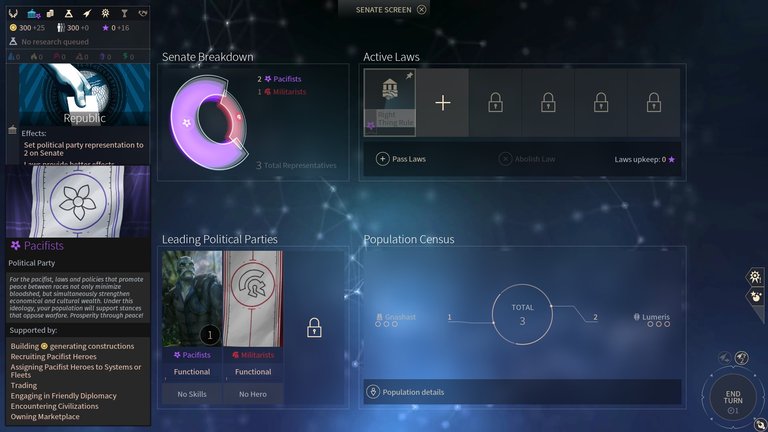
Technological Ascension
Technology plays an important role in everything you do in this game. It’s not something that can easily be overlooked or randomly selected. Your technological goals and needs will change rapidly depending on your situation. Diplomacy is just as dangerous and important as weapons, as making peace with an enemy or bribing them into submission can completely lock them out of going to war with you. But if you haven't been developing your economy, you aren't going to be bribing anyone. Want to colonize a gas giant? The proper technological advancement has you covered.
There are four technology branches dealing with all aspects of galactic conquest. Empire Development, Military, Economy & Trade, and finally Science & Exploration. In each branch there are five tiers of technology that need can be unlocked after fulfilling specific requirements. Once opened, these new techs can be freely learned.
(Oh, did I mention, that majority of technologies will affect the popularity of various political parties. I had to be very careful when researching my economy and trade tree so the industrialist didn't wind up taking over.)
While your new technologies will improve many things about your empire, few are as interesting and fun as the ones that expand your ability to explore. You start out, depending on your game settings, in one of several constellations. These can make up a variety of number of star systems, or might contain only one. If you don' t have the right technology when you've explored all your constellation, you’re stuck until you get it. I'll be honest, I was a bit confused by it all to start. But after time passed I really came to appreciate it. It allowed me some breathing room – no one else was in my starting constellation, so I could set up my game so to speak.
Most exploration craft come with probes. These probes are used to explore various anomalies. But they also can sent out in to deep space, on a straight line dictated by the player, to look for other star systems. When you find one, you can start scheming on how to get there.
The dangerous balancing act of technology and the isolated start with constellations may not appeal to everyone. However, I think if you go in knowing this is how it works you may come to appreciate like I did. Looking at other 4X games, of any genre, if I had a built in buffer between me and the rest of the players at start, I'd wind up a happier guy.
That said the pirates will still mess you up. Those jerks appear everywhere.
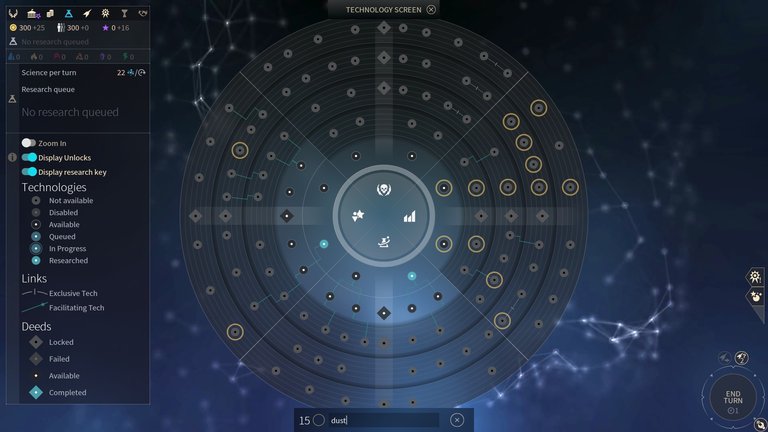
Expanded Horizons not Echoes of Greatness
In the end, I'll confess to something I didn't cover, mostly because it was the downfall of my first play through. Sure, I could have blamed my loss solely on the Carvers coming over and murdering my people, eating my systems en masse after our border tussle... But really, the main reason is that I let the quest system cloud my eyes.
There are a wide variety of quests, and these are directly linked to events and factions in the game. They are one of the best parts of the game and my Lumeris leader couldn't take their eyes off the glory that quests offered. I was constantly sending minions out to the far reaches of the universe while the Carvers devoured our borders and decimated our insignificant fleets. Relishing in the riches of special rare resources while the insectoid monsters turned our people into food.
Oh well, at least we had enough Eden Incense to ignore their horrible horrible deaths.
Endless Space 2 is exactly what you would hope of a sequel to a beloved 4X game series. It takes what it learned not just from the previous incarnation, but also from community feedback via Games2gether and from other games as well. This leaves us with a new game that expands on its roots – not reinvents them. While the learning curve for the more minute systems of the game could be a struggle for those unfamiliar with things, if you pay careful attention to the extensive tutorial and keep an eye on the data given by mouseovers, I think most players will be fine.
Ultimately, any any issues or concerns with I have with the game are quickly forgotten in the rich setting that allows for such a high degree of personal choice. Hopefully this game will prove the merits of the Games2gether system to Sega, and we will see if continue on in the future.
9/10
Reviewed by Joshua Smith aka Old Man Mordaith
Edited by Jesse Roberts
This game was received for free as a review copy.
This article may not be republished without permission by the author.